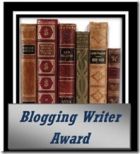The Highly Improbable
Alice recently tried to do six impossible things before breakfast and no one accused her of being too pessimistic in labelling them impossible.
Impossible seems to be a big no-no at the moment. It seems by pointing out that something is impossible you are being overly negative.
It may not seem like a nice thing to do but sometimes pointing out the highly improbably nature of certain outcomes can be a kindness. Of course it can also be tactless, mean, cruel and spiteful. I guess it all comes down to motivation behind the statement and the delivery.
But whether or not you like the word impossible, do your characters? Are they the negative type who likes to think that doors are closing everywhere around them when in point of fact they have millions of unrealised opportunities? Or are they optimistic to the point of insanity? Somewhere inbetween perhaps?
When people discuss character they talk about motivation and they talk about appearance and goals and all of these other sorts of things but the idea of them being an optomist or pessimist doesn’t seem to come up. The basic underlying personality that should motivate most of what they do.
I’ve actually been trying to figure this out for a character from one of my WIP’s that I’ve been playing with lately. The character is inconsistent at the best of times but I’m starting to see an underlying logic in her actions. She’s ridiculously optimistic. Her erratic actions and seemingly illogical behaviour actually come down to the fact that she genuinely believes that things will work out okay so you might as well jump. Now that I know where she’s coming from I can probably clear up some of her more bewildering actions and make it all kind of work out okay.
How about your characters? Optimists or pessimists?
Blind Draft
I seldom read over what I’ve written immediately after I write it. Mostly because I usually hate every single word and delete it rather than giving myself the space I need to read it and see the good in it and preserve the good while carefully editing.
That said, I read a scene that I drafted the other day immediately after finishing it. Not so much because I wanted to delete it but because I had a nagging feeling that something was terribly wrong and the feeling wouldn’t let go of me until I’d read it. For once I didn’t reach for the delete key right away. Instead I started thinking through all the sensible questions. What was I trying to accomplish with this scene? What perspective was I trying to tell the story from? How did this scene fit into the overall story I was trying to write?
Then I reached for the delete key. Not because I hated what I had written but because I suddenly knew exactly what was bothering me about the scene.
The point of the scene was to introduce the character of a new player in the story and establish her relationship with an already established character. This relationship is going to be built out and has quite a history that will unfold throughout the story but at this scene just needed to establish where their relationship was and not how it got there. So the question I was left asking was why exactly this new character’s family history was being explained in extremely dull exposition, meanwhile the relationship was so played down as to be non-existent within the scene.
Two rewrites later and I think the scene is now serving its purpose. It still isn’t good. It is very much in a rough draft stage and no doubt I will have to rewrite it many more times before I’m actually happy with it, but just getting rid of all the excessive and useless information that was cluttering up the scene and making it drag has made it that much better and easier to read. It’s also helped to highlight what is actually important within the scene.
I don’t think I’m going to do this with every scene during the first draft stage. I’d probably never finish the first draft and end up in an endless cycle of rewriting, but an occasional surgical look at specific problematic scenes definitely served its purpose.
What’s your drafting process?
Writer’s Fatigue
I’m on holidays at the moment but I’m reposting some of the more popular posts from my old blog, Darkened Jade. If you leave a comment I’ll be sure to catch up with you when I get back.
Suffering from writer’s fatigue?
You know the sensation. Your fingers are sore, your eyes are stinging, and your shoulders feel like they’ve been locked in place. You have just spent the last three hours sitting and typing, desperately trying to convert the ideas in your head into something coherent, and you know, given another hour or two, you might actually have something brilliant in front of you, but you can’t make it. This is writer’s fatigue. (It applies even if you hand write, only it is your neck that is going to be killing you.)
I used to hit this wall, a lot. It isn’t that I don’t have ideas, it is just that the physical act of trying to write is going to cause me pain. When I stand up, if I stand up, I will probably fall right into bed and have a terrible nights sleep and wake with a neck cramp. It wasn’t until I set myself a strict deadline of a month to write the first draft of a novel that I really worked on getting through writer’s fatigue.
Some simple solutions to increase your staying power with writing:
1. Stand up.
Obvious really. Every half and hour, or scene, or page, or whatever unit of time you set, stand up and pace around the room. I use the time to look out the window, refill my water, or chase the cat away from whatever she is tearing up. Doing this I can spend nearly all day writing and I determine when I take my breaks.
2. Before you write do some sort of gentle exercise.
I like yoga, because it stretches out all the cramps from the previous day and gets my circulation moving, while not causing me to sweat too much. Also I can do it at home. However any relaxing, physical activity, will get your body ready for the day, and work out any of the stress from the previous day.
3. Change what you are writing.
This is odd, but sometimes it isn’t that you are writing, it is that you are writing the same thing that is the problem. When my brain starts feeling stressed and the tension in my shoulders increases, I send a message to a friend, or write a quick short story, or something else, and I can feel myself relaxing as I move away from something my brain is urging me to finish. After you feel relaxed again, return to what you were working on with fresh eyes.
4. Eat.
This is probably bad, but have food with you when you are writing. A lot of the time, the problem is you are burning through fuel because your brain is working really hard, but because there is limited physical movement you don’t get the right signals to tell you to eat. Obviously healthy fruit or nuts are best, or a sandwich. Personally, I go for straight sugar, but eating is essential for getting away from writer’s fatigue.
5. Have a friend drop in.
Usually we like to be left alone while writing, and it is essential that we can focus. Have someone who will drop in on you in a few hours, just to make sure you have taken a short break. They can talk with you, even if the talking is about the writing, and you can recap what you have done, all the while you are rejuvenating and getting ready to write some more.
6. When all else fails, set an alarm.
Set yourself a limit. Know that at this time you are going to… do whatever it is you do. Set an alarm and stick to only hitting the extend on that alarm once. That gives you a ten minute grace period to finish that all important sentence, save your work and leave.
From my own personal experience, I know that when writer’s fatigue is coming on, everything I write needs to be rewritten the next day when I am feeling fresh. Dealing with writer’s fatigue, taking breaks and eating, ensure that there are less errors, and the writing feels more energised.
Leave your own comments on how you deal with writer’s fatigue.
And here’s the link if you haven’t yet checked out the blurb or excerpt for Death’s Daughter.
Love Triangle
I wasn’t supposed to have a love triangle in my current WIP. I’ve gone back through all my ideas and plans and nowhere in it does it suggest that character B likes the protagonist. Yet while I’ve been writing, certain things have been developing.
Character A and the protagonist are getting along swimmingly and things are right on schedule for them but Character B is just so rugged and wild and tempting that I’ve definitely been seeing some sparkage between him and the protagonist. The question becomes do I figure out what this means for the story, develop the relationship properly and then have a full love triangle, or do I try to steer the story back to its original course? Given that the original romance was really just a side plot to a quest story with a little bit of horror thrown in for fun.
It is a question I’ll have to answer soon because otherwise I’ll be too far along one path to easily change without a lot of rewrites and I try not to rewrite until after I’ve finished the first draft. Otherwise I just keep rewriting and the draft never finishes.
So – advantages of going with the love triangle scenario:
1. It is going to add tension between the characters and it will help flesh out character B’s role which in the original plan was clearly not well defined.
2. It will help slow down Character A and protagonists relationship which is going a bit too well at the moment.
3. It makes sense. It wouldn’t make sense for the protagonist to utterly ignore the fact that there are sparks between her and Character B, even if she only acknowledges it long enough to end it.
4. It will be easier to edit out a subplot that doesn’t work later than it will be to add it in after the fact.
Disadvantages:
1. I don’t like love triangles. I find them a little cliché.
You’re opinion? Are you for or against love triangles? Have you ever created one in a story?



